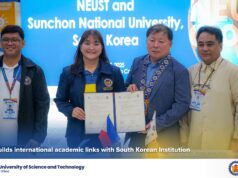The NDFP Reciprocal Working Committee on Social and Economic Reforms (RWC-SER), whose members are now in Utrecht, The Netherlands in preparation for the second round of peace negotiations in Oslo, Norway from October 6 to 10, said in a statement that there are “positive signs” that both parties would agree on agrarian reform.
NDFP consultant and RWC-SER member Randall Echanis said that “one manifestation (of success in the talks) is that despite the vacuum on agrarian reform due to the expiration of the government’s comprehensive agrarian reform program in June 2014, the government, like the NDFP, has included agrarian reform as one of the talking points.”
“Another encouraging gesture is Duterte’s order to condone unpaid arrears on land amortization of farmer beneficiaries and the moratorium on land-use conversion,” Echanis said, adding “writing-off unpaid amortizations is a step towards free land distribution.”
“A moratorium on land-use conversion on a nationwide scale could provide relief to farmers facing threats of eviction,” he said.
Meanwhile, NDFP consultant and RWC-SER member Adel Silva said that “the development of the steel industry will be one of the priorities in the discussions on national industrialization.”
“The development of a Filipino integrated steel industry is a crucial component of national industrialization. The country’s natural resources must be used by Filipino industries, not exported to benefit foreign economies, and must serve the needs of the local economy,” Silva said.
Silva added that a Filipino steel industry “will provide jobs and livelihood for our people as well as increase local domestic economic activity.”
“We urge those who are interested in helping out to build our steel industry to submit proposals to both parties,” Silva said.
He noted that “the country could also seek the help of other countries in developing the steel industry especially in light of Duterte’s overtures and deepening relations to other countries.”
However, the NDFP consultants said they “still expect the negotiations on land reform and national industrialization to be exciting, complex, and a bit tough.”
“It is important that Duterte’s gestures connect to the GRP negotiating panel for the talks to be smooth. Or else, we expect bumpy discussions in Oslo,” the NDFP RWC-SER committee statement stressed.
The substantive agenda on social and economic reforms is next to be negotiated by the two parties according to the framework agreement set by The Hague Joint Declaration of 1992.




